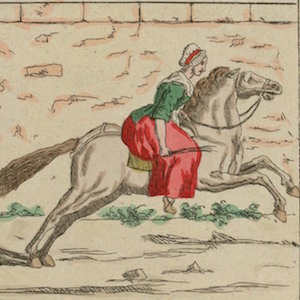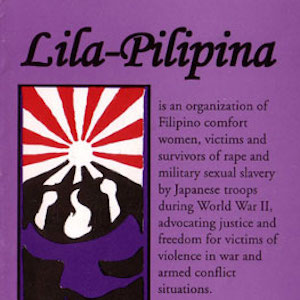Women

Vanguard of Women Going to Versailles
Publicity about political machinations, coupled with the continued high price of bread, mobilized market women and encouraged many men to support them. They hoped to fetch the King and his family to end attempts against the Revolution and stabilize prices.

Tobacco Workers
In addition to sugar, tobacco was important to Puerto Rico’s industrial agricultural order after the arrival of the United States. Puerto Rican women and men labored in a building called a fabrica (or factory).

Workers’ Celebration
When Americans arrived on the island, the labor movement in Puerto Rico was in its infancy. Labor leaders were aware of the reputation of the U.S. labor unions, so they worked to affiliate with the American Federation of Labor (AFL) as early as 1899.

Lady Florentia Sale Diary
Lady Florentia Sale (1790-1853), wife of Major-General Sir Robert Henry Sale, wrote a journal of her experiences during the First Afghan War.

Sati Engraving, Burning a Hindoo Widow
Toward the end of the 1700s, the evangelical movement in Britain argued that one’s commitment to Christ should be reflected in action, primarily the effort to end slavery in the British empire and to proselytize or seek converts among the “heathen.” Initially, the English East India Company had p

The True Woman
This is a 17th-century French engraving entitled The True Woman.

Woman with Lenin/Stalin Flag
Articles and images published in Soviet newspapers on March 8, International Communist Woman’s Day, provide the most obvious examples of how women were used as symbols in a propaganda campaign.

Lila-Pilipina Brochure
The Lila-Pilipina Brochure is a creation of the feminist group of Filipino “comfort women" called Lila-Pilipina, who have banded together with feminist goals/messages for peace.

Lady of the Bridge, Tale of Genji Painting Scroll
The greatest work produced during the Heian era was The Tale of Genji by Murasaki Shikibu, lady-in-waiting to Empress Akiko. Considered the world’s first novel, Genji is written as an absorbing portrait of Heian court life, the splendor of its rituals, and aesthetic culture.

Bamboo River II, Tale of Genji Painting Scroll
The greatest work produced during the Heian era was The Tale of Genji by Murasaki Shikibu, lady-in-waiting to Empress Akiko. Considered the world’s first novel, Genji is written as an absorbing portrait of Heian court life, the splendor of its rituals, and aesthetic culture.